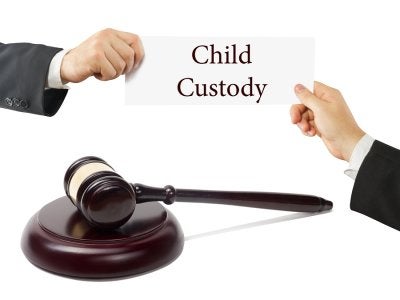-
What Is Equitable Distribution?
During a divorce, separating property and assets can be a daunting process. Ideally, a divorce lawyer in Maryland can represent your interests during this negotiation process to ensure that your rights are being protected. If you and your ex cannot agree on how to divide the property, the court may make a determination that equitable distribution should occur.
Equitable distribution means dividing all of the marital assets in a fair manner. This standard does not mean that property is divided up equally but rather that is it shared between the two parties in a way that is deemed equitable based on factors such as the duration of the marriage, the financial and nonfinancial contributions made to the family by each party during the marriage, and each party’s current financial situation. Because equitable distribution is extremely complex, having a divorce attorney at your side is essential. Your attorney can accurately represent your claim to marital property during a divorce so that you get your fair share of the assets. He or she may also help with property division negotiations before you go to court, so that you and your ex can attempt to settle the dispute without legal intervention.

-
The Basics of Alimony
Alimony, or spousal support, is frequently an area of dispute in divorce cases. Before discussing spousal support in your divorce settlement, you should have an experienced alimony attorney in Owings Mills on your side.
Watch this video to learn more about how alimony is decided during divorce cases. In addition to any applicable state laws, courts consider each family’s individual circumstances before ruling on alimony. Your divorce lawyer can build a case that demonstrates your current financial standing after your marriage ended to argue either that you are entitled to support from your spouse if you are seeking alimony or that you should not have to pay to support your ex if you are fighting an alimony request.
-
Helping Your Child Adjust to Visitation
After a divorce or legal separation, you and your ex will follow a court-ordered parenting plan. This document establishes the type of child custody that both parents will have and it specifies when the child will be with each parent. Visitation is difficult to adjust to for both parents and children, but as time passes, the arrangement will start to feel more normal. Remember that it is possible to petition for a modification of the visitation schedule as your child grows and situations change. Talk to a family law attorney near Owings Mills for guidance.

Maintaining a Routine
Try to imagine how difficult it must be for a child to live in two separate households with two separate routines and sets of rules. Consistency across both households will help your child feel more secure and may even curb problematic behaviors as he or she grows older. Ideally, you and your ex can maintain similar daily routines and household rules, such as finishing homework before playtime and having dinner by a certain time.
Feeling at Home
If you’re the parent who moved out of the family home, you have the added challenge of helping your child feel at home in the new residence. Your child should have a bedroom of his or her own. Your child should arrange and decorate the bedroom to take ownership of the space. Extravagance is not necessary, but comfort is. Resist the temptation to purchase lots of new toys for your child for the purpose of distracting him or her from the new arrangement. Instead, focus on spending quality time together enjoying activities that you would normally do with your child.
Handling Overnights
Overnight visitation can be stressful for young children, particularly during school breaks when a child might live away from the primary residence for a week or longer. Do not take it as an insult if your child expresses homesickness or misses the other parent. Encourage your child to share these feelings openly and offer judgment-free reassurances.
Staying Connected
Children should always feel free to contact either of their parents regardless of which parent they are currently with. Phone calls, text messaging, and video calls strengthen the child’s relationship with each parent. Whenever it’s practical to do so, give your child privacy as he or she chats with the other parent.
-
Sharing Legal Custody: Tips for Dealing with Disputes
After a divorce, children will primarily reside with one parent, even if both parents share custody. There are actually two different types of custody: physical and legal. Physical custody refers to where the kids maintain residency and legal custody refers to the right to make major decisions for the kids’ upbringing. If you share legal custody with your ex, you can speak with your child custody attorney in Owings Mills about strategies of successfully co-parenting.

Go to Mediation
The most effective way to deal with legal custody disputes is to prevent them from occurring. However, even if a dispute has already occurred, child custody mediation can help. You and the other parent will sit down with a neutral mediator, who will help you work toward a mutually agreeable solution that is in the best interests of the children. Mediators can facilitate discussions regarding the children’s religious upbringing, education, and healthcare, among other decisions.
Keep Each Other in the Loop
After the divorce, you may wish to avoid your ex completely, but this simply isn’t possible when you share children with him or her. Parents can reduce the possibility of a dispute by agreeing on communication methods and frequency in advance, and by agreeing to keep each other in the loop when something comes up. For example, if you receive updates from the school about soccer games, school pictures, or progress reports, you should promptly send the other parent a copy of the notice. Similarly, the other parent should let you know promptly if a child fell ill during visitation and needs to take antibiotics. For other types of medical treatment, such as administering psychiatric drugs, the permission of both parents is required.
Set Aside Emotions
When a dispute does arise, it’s helpful to spend a few days thinking about the matter before wasting more time arguing with your ex. This helps you get your emotions in check, think about the issue in a logical way, and develop ideas for compromising with your ex. Remind yourself that your only priority is to promote the best interests of your kids.
Put All Agreements in Writing
Secondary disputes can sometimes arise if one parent “forgets” about the agreement or claims that he or she never agreed at all. Written communication is always best. For instance, if you and your spouse agree to take the kids to different religious centers, sign a written agreement that neither of you will disparage the other religion in front of the kids.
-
A Father’s Custody Rights
During a divorce and child custody case, fathers often have a notoriously difficult time winning primary or joint custody. To protect their rights, fathers should always have a child custody lawyer in Owings Mills on their sides in court. This video explains more.
Although more and more fathers today are fighting for and winning the type of child custody they want, there is still a tendency in the courts to assume that the mother should be the primary caregiver and custodian for the children. Fathers who want to protect their rights and get as much time with their kids as possible should work with a family attorney with experience in fighting for father’s rights. Fathers must aggressively provide evidence that the custody agreement they are pursuing is in the best interest of the children.
-
Common Requirements in Custody Agreements
Child custody agreements are one of the most difficult parts of negotiating a divorce settlement. As your family law attorney in Owings Mills can tell you, there are many decisions that have to be made, from where the child will live to who gets to see them on the holidays. Here is a look at some of the child custody issues that are part of most cases.
Non-Disparagement Clauses
 In contentious divorces, parents frequently have concerns—often for good reasons—that their ex-spouse will speak badly about them to the children. Fears over this kind of damaging behavior have led to non-disparagement clauses being added to child custody agreements. These clauses can vary greatly depending on the needs of the family, but in general, they are written to ensure both parties agree to avoid saying or doing anything that could affect the relationship between the ex-spouse and the children. In some cases, non-disparagement clauses also prevent this kind of behavior towards other family members, or even towards new spouses should a future remarriage occur.
In contentious divorces, parents frequently have concerns—often for good reasons—that their ex-spouse will speak badly about them to the children. Fears over this kind of damaging behavior have led to non-disparagement clauses being added to child custody agreements. These clauses can vary greatly depending on the needs of the family, but in general, they are written to ensure both parties agree to avoid saying or doing anything that could affect the relationship between the ex-spouse and the children. In some cases, non-disparagement clauses also prevent this kind of behavior towards other family members, or even towards new spouses should a future remarriage occur.Holidays
When families split up, holidays naturally become an issue. Unless parents agree to continue to spend major holidays together, they will need to divide up this time as part of the custody agreement. Some families agree to a set schedule, while others decide to rotate major holidays. Whatever the agreement it is, it is helpful to consider these questions during the custody negotiation process rather than waiting for a holiday to approach.
Expenses
A child support agreement will be part of most custody cases, but what about expenses that go above and beyond those costs, such as summer camps, braces, and school trips? When children have a need or an opportunity that represents an additional expense, will both parents need to agree and split the costs, or can one parent make the decision and either cover the entire cost or still ask the other parent to contribute financially? Many expenses that go above and beyond basic child support will arise during co-parenting, so it is helpful to have a framework to rely on when they occur.
-
Can I Temporarily Modify Child Support for the Summer?
When one parent is paying child support, he or she often wonders if it’s necessary to continue to pay when the children are staying at his or her house. For instance, if the children spend the summer with the non-custodial parent who pays child support, is it necessary to keep making payments during that time? Questions like these can be discussed with your family law attorney in Owings Mills , who can help you understand your rights to modify child support agreements.
Child support cannot be discontinued without a court order. Child support law requires that payments be made continuously, even when the children are staying with the parent making the payments. This is because the other parent still must maintain the household for the children to return to when any visit is over.
Your child support attorney can help you consider whether a modification could be appropriate for your case—for instance, if your earnings have changed after your divorce. Never adjust child support on your own without a court order, as you could face legal trouble over back payments.

-
Terminating Child Support
During a divorce, issues such as child custody and child support payments are determined with the help of your lawyer in Owings Mills . However, when a child’s eligibility for child support has ended, the parent responsible for such payments can petition to terminate the obligation for continued support under Maryland child support law.
If you wish to terminate child support, you must file a court form that states the reason why the support is no longer necessary. These reasons can include the child’s age, marital status, or even his ability to self-support without additional financial assistance. You can find out more about the process of terminating child support mandated by your divorce agreement and how your family attorney can help you if your former spouse or child dispute your request by watching this short video.
-
What to Expect in a Child Custody Dispute
A child custody dispute can be stressful for everyone involved because it often causes extremely emotional issues to surface. Going into a dispute with a focus on what is best for the children and the assistance of a child custody attorney near Owings Mills will help you navigate the issues surrounding this complicated part of the divorce process. When you enter into a dispute over child custody, here is a look at what you can expect.
Negotiation
In some cases, parents can negotiate a child custody agreement with the help of their divorce lawyers. During this negotiation, you will figure out issues such as which of the types of child custody is appropriate for your case, where and when the children will spend time and who is able to make decisions about the children’s lives, such as their schooling and healthcare. If both parents are civil with each other, often these negotiations facilitated by child custody lawyers are easier than going to court. If negotiation doesn’t work, then your attorney will seek a court date for a judge to hear your dispute.
Case Preparation
 To prepare for your court date, your lawyer will gather information from you to support your argument for the type of custody agreement you want. Courts make decisions based on what is best for the child, so you may need to demonstrate that you have a stable home that gives children easy access to their school, friends, and activities. Showing that you have been the primary caregiver in the past or that your spouse is unable to provide the children with the care they need because of his or her work schedule or personal life is also helpful. Your attorney will carefully gather evidence to support your custody request.
To prepare for your court date, your lawyer will gather information from you to support your argument for the type of custody agreement you want. Courts make decisions based on what is best for the child, so you may need to demonstrate that you have a stable home that gives children easy access to their school, friends, and activities. Showing that you have been the primary caregiver in the past or that your spouse is unable to provide the children with the care they need because of his or her work schedule or personal life is also helpful. Your attorney will carefully gather evidence to support your custody request.Court Testimony
Your lawyer will present all of the information necessary to support your case to the court. You may also be called on to answer questions and to fight back against allegations made against you by your ex. Depending on the age of your children, the judge may also consider their preferences. Typically, judges seek this information in a private meeting away from each parent to put the child at ease.
-
Preparing Your Children for a Custody Dispute
For the sake of the kids, it’s always preferable to resolve child custody issues amicably. You may find that many issues are resolvable through compromise when both parents prioritize the best interests of the children. Unfortunately, achieving mutual agreements isn’t always possible. If divorce mediation fails to resolve the dispute, a judge, like those found in Baltimore Countymust resolve the child custody case. Your divorce lawyer is likely to advise you to avoid involving your child in the dispute as much as possible.
Discussing the Divorce
 Avoid discussing the divorce with your kids until you are certain that it will go forward. If possible, it may be a good idea for both parents to sit down with the kids to explain that they are going to live apart from now on. Use age-appropriate language to tell the kids that although both parents still love the kids very much, they’re not going to be married any longer. Depending on the children’s ages, they may ask which parent they will live with. Since the child custody case hasn’t been resolved yet, you can simply tell them that they will still be spending plenty of time with each of you and that neither parent will “disappear” from their lives.
Avoid discussing the divorce with your kids until you are certain that it will go forward. If possible, it may be a good idea for both parents to sit down with the kids to explain that they are going to live apart from now on. Use age-appropriate language to tell the kids that although both parents still love the kids very much, they’re not going to be married any longer. Depending on the children’s ages, they may ask which parent they will live with. Since the child custody case hasn’t been resolved yet, you can simply tell them that they will still be spending plenty of time with each of you and that neither parent will “disappear” from their lives.Explaining the Custody Evaluation
In contested child custody cases, the judge may order that a child custody evaluation be completed. A court evaluator is a neutral third-party who will interview both of the parents, the children, and perhaps other parties such as teachers, counselors, and other family members. The court evaluator may visit each parent’s home. Parents are advised never to prepare kids to answer questions in a certain way. Rather, the kids may be told that the evaluator is trying to help the parents work through their issues and that the kids should answer any questions honestly.
Encouraging Open and Ongoing Communication
During a child custody dispute, kids may feel confused, anxious, and isolated. They may worry that the divorce is somehow their fault. It’s crucial to encourage your kids to discuss their worries and concerns. Listen to them without judgment. Reassure them that although you may not have all the answers right now, you will always love them and the situation will get better.
RECENT POSTS
categories
- Uncategorized
- Divorce
- Infographic
- reviews
- Accidents
- Divorce Law
- Maryland Divorce Law
- Child Custody
- Alimony
- Indefinite Alimony
- Divorce Lawyer
- Annulment
- Kent L. Greenberg
- Matthew J. Rudo
- Child Support
- Credit Card Debt
- Remarriage
- Divorce Papers
- Child support law
- Alimony laws
- divorce process
- Alimony Payments
- Absolute Divorce
- Contested Divorce
- divorce attorney
- family attorney
- family law
- No-Fault Divorce
- Family Care Plan
- financial statement
- Online Divorce
- lawyer
- Uncontested Divorce
- Law Office of Kent L. Greenberg
- P.A.
- Joint Custody
- Senior Divorce
- DIY Divorce
- Car Accident Attorney
- Greenberg
- Personal Injury Law
- Domestic violence
- Вечірні сукні
- Вечерние и выпускные платья в Киеве 2023 года
- Яку весільну сукню купити для цивільного весілля?
- Весільний салон Київ
- Весільні та Вечірні Сукні
